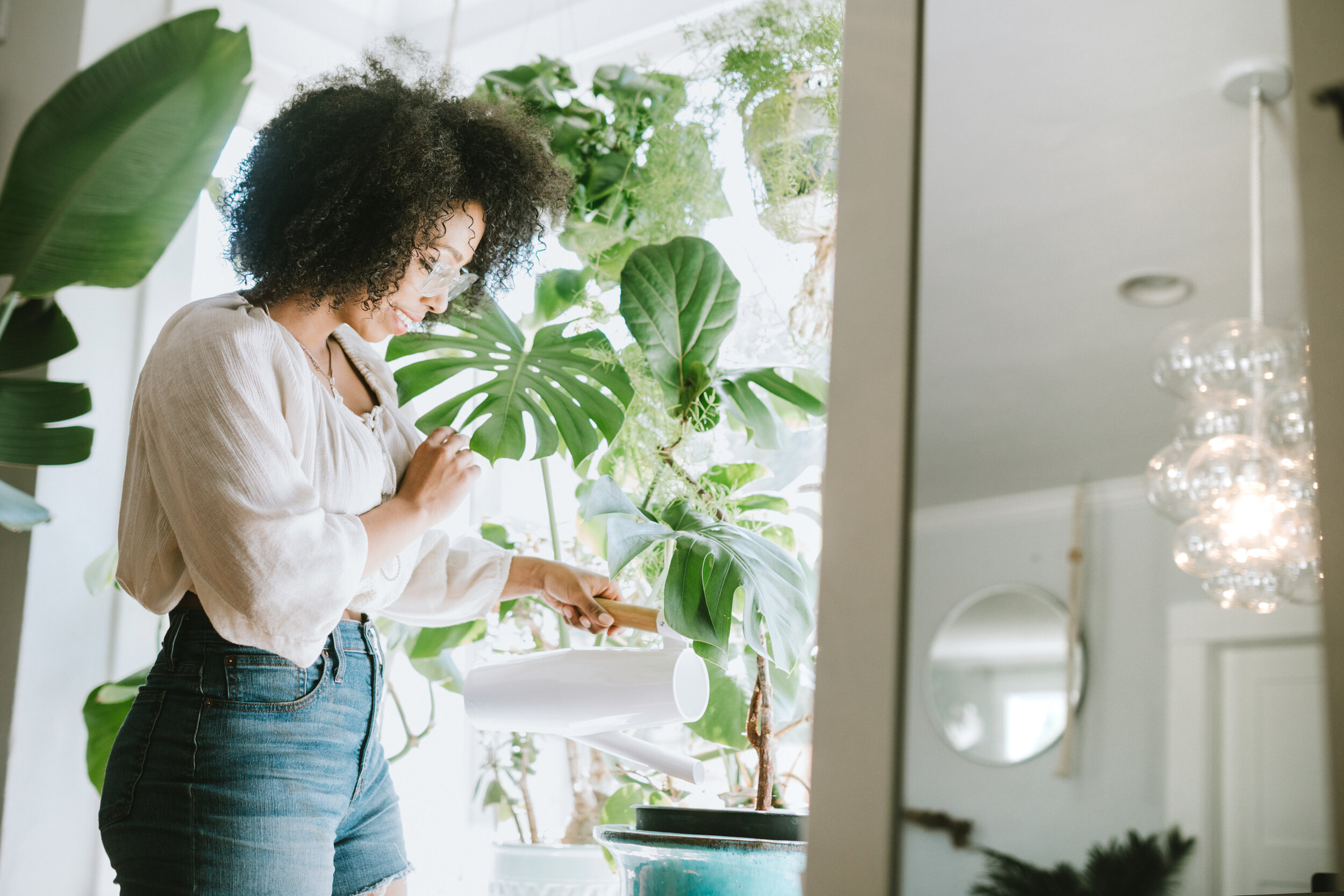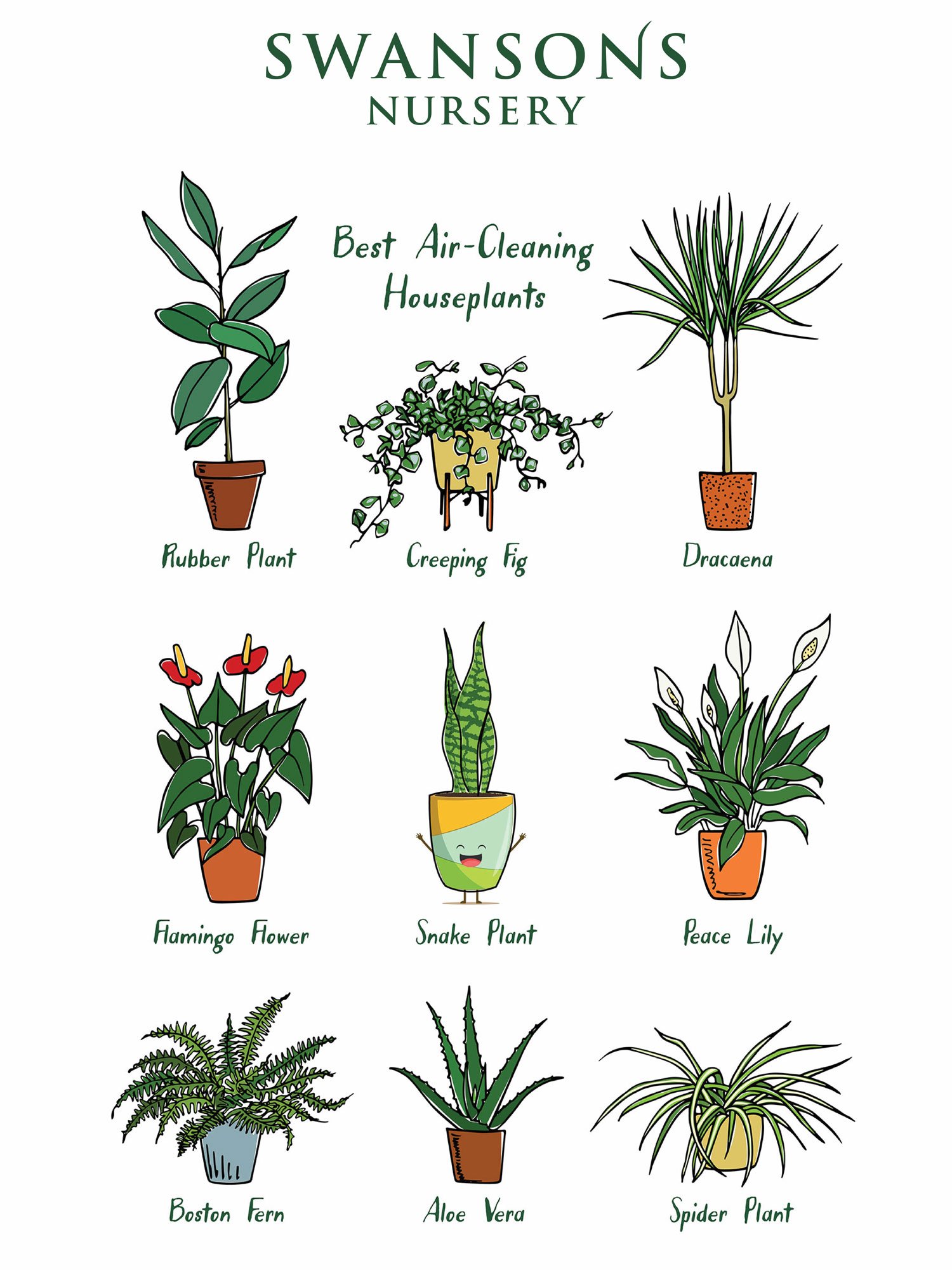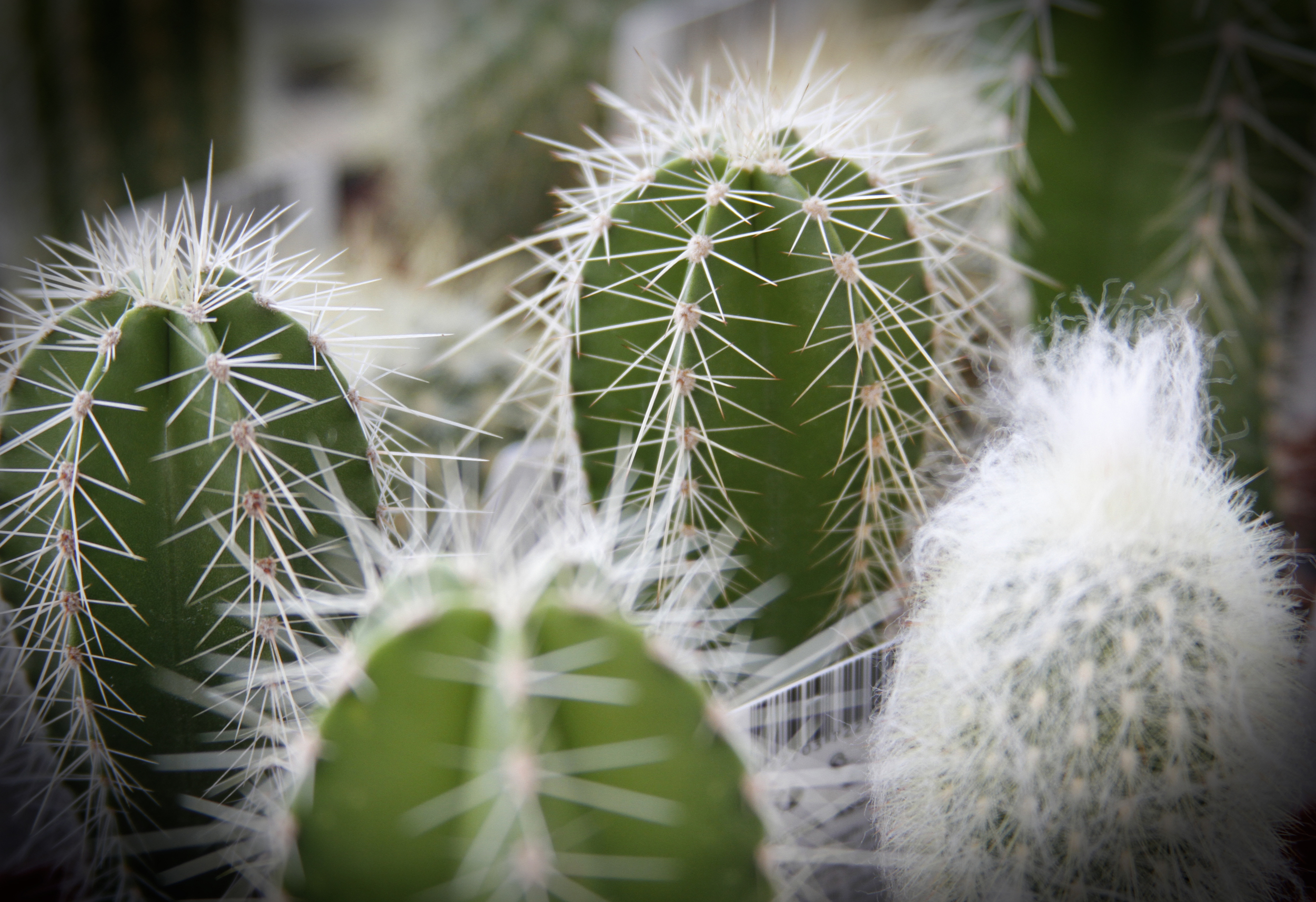Nothing adds more beauty and comfort to our homes and offices than the lush flowers and foliage of indoor plants. Bedrooms, bathrooms, kitchens, cubicles... There really isn't a space a houseplant can't enliven. Just add light and water, and you've got a growing indoor oasis. Bringing plants into your home is aesthetically pleasing and - amazingly - plants can offer strong health benefits as well!
Multiple studies have proven that indoor plants keep you healthier and happier, offering both psychological and physical health benefits that include:
Improving your mood
Reducing fatigue
Lowering stress and anxiety
Improving office performance and focus
Boosting healing and pain tolerance
Minimizing the occurrence of headaches by improving air quality
Easing dry skin and respiratory ailments due to dry air
Many houseplants absorb toxic substances such as formaldehyde, benzene, and trichloroethylene, found in man-made materials that are known to "off-gas" pollutants into the air in your home, school, and office. In addition, a study done at Virginia Tech led researchers to conclude that houseplants can reduce indoor dust by up to 20%. In effect, houseplants are efficient air cleaners.
NASA has done extensive studies of the role of houseplants in cleansing the air, hoping to capitalize on these benefits for future space stations. Their studies have shown that certain houseplants are exceptionally good at cleansing the air (click to see NASA’s houseplant list). NASA recommends having 15-18 houseplants for a 1,800-square-foot house. While not all of us have room for quite that many plants, even just a few can be effective. Dr. Virginia Lohr, a professor of horticulture at Washington State University, suggests that filling as little as 2% of the room with plants will make an impact.
Indoor plants improve air quality in other ways as well. Plants release water vapor into the air, which increases humidity, and this can help improve respiratory and skin health by offsetting the drying effects of heating systems. This can be an incredible benefit to those with respiratory issues, headaches, and allergies.
Plants also increase oxygen levels in the air by absorbing carbon dioxide and releasing oxygen during photosynthesis. According to a Seattle Times article, you can maximize your benefits by placing plants "in your 'breathing zone,' within 6 to 8 square feet of where you normally sit or lie." A positive effect of this increased oxygenation can be to improve our mood, energy, and mental focus.
Multiple studies show that proximity to plants helps to improve concentration and elevate your mood. Studies have even found that when people were allowed to have indoor plants in their office space, their work performance improved. No wonder so many new tech offices include indoor spaces reminiscent of forests and tropical oases. Not only are they beautiful, but they also help people feel better and work better.
Humans have a strong connection to nature and bringing nature into your immediate surroundings makes you calmer, more content, and as we’ve seen, more focused. Outdoor activities like forest bathing and mindful nature walks are shown to improve levels of stress, anxiety, and depression, and living with indoor plants can do the same.
According to Matthew Wichrowski, MSW HTR, a clinical assistant professor and senior horticultural therapist at NYU Langone Medical Center, “Horticulture has great potential for improving human health and wellness… A biophilic space has the effect of improving mood and lessening depressive thought patterns.”
There is scientific evidence that being around plants can reduce blood pressure and heart rate as well. There are even studies going on now that are testing to see whether having plants nearby in a hospital room can actually help patients better manage their pain.
Just having plants around you will obviously offer physical and psychological benefits and the act of caring for your plants can also help decrease stress and anxiety. So next time you’re watering your plants, slow down, take a few deep breaths, and really focus on what you’re doing. Admire your plants’ leaves and flowers; touch them; maybe even talk to them! It will help both you and your plants thrive.
And don’t worry if your houseplants aren’t looking their best. That’s what we’re here for. You can find indoor plant care tips on our Indoor Plant Resource page, on our Blog. Look on our Monthly Gardening Tips page to find seasonal tips on watering, fertilizing, and repotting your plants.
Updated for 2024.








